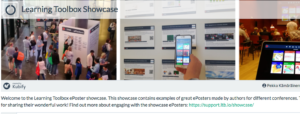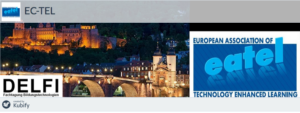At the end of last year I wrote a series of blog posts with which I presented a set of reports that I had delivered for the EU-funded project TACCLE4 CPD. As regular readers of this blog know, the aim of the project is to design models for continuing professional development (CPD) that focus on promoting digital competences of teachers and trainers. The earlier TACCLE projects had focused mainly on school-based and subject-based learning in general education. However, in the concept of the current project the aim was also to address also the field of vocational education and training (VET). From this perspective our institute, Institut Technik & Bildung (ITB) was invited as the partner responsible for VET.
During the work I found it necessary to prepare special VET-related reports to clarify the boundary conditions, specific needs and emerging potentials for shaping VET-related approaches to promoting digital competences. From this perspective I presented in November and December 2019 the following set of VET-related reports:
- Report 1: Policy analyses (with focus on different contexts, approaches and strategies to promote digital competences in the field of VET
- Report 2: Legacy of predecessor projects (with a differentiated interpretation of the approaches of prior TACCLE projects and the Learning Layers project)
- Report 3: Use of Open Educational Resources in VET (with specific insights into the opportunities to use OER in particular vocational learning contexts)
- Report 4a: Research-based reflections on strategies and training models (with specific emphasis on different innovation paths and feedback from practitioners)
- Report 4b: The “Theme Room Training 2020” framework (as an outline of a training concept for the field of VET, based on different thematic blocks)
At that time I felt that the series of VET-related reports had been completed.
Elements on the report – training on Artificial Intelligence and uses of Learning Toolbox
During the later phase of the TACCLE4 CPD project I had some exchanges with the newest TACCLE project on Artificial Intelligence and Vocational Education and Training (AI and VET). I visited their kick-off meeting and learned about their project plans. Then I became aware of the Finnish initiative “Elements of Artificial Intelligence” that was promoted as important civic learning for the whole civil society. And later on I got access to the first report on the project AI and VET and became aware of the issues that they had explored in the initial phase of their work. This gave rise to a blog post on the challenges for civic learning (in general) and for VET providers (in particular).
In addition to this I have had intensive exchanges with the developers of the Learning Toolbox (LTB) who were our former partners from the Learning Layers (LL) project (see my previous blogs). In this way I got information, how training centres equipped their apprentices for independent learning during the corona crisis – with the help of LTB-stacks. Also, I learned how the LTB-developers made use of the quiet period by preparing new instructions and demonstration videos. Furthermore, I learned of the successful use of LTB as support for ePosters in online conferences and workshops. Finally, the publishing of the new Learning Toolbox Showcase made transparent the wide range of conferences and themes that had been covered by numerous ePosters. I have shared this information by publishing several blog posts.
The idea of a new report takes shape
When writing this blogs I was focusing on separate issues. And indeed – the themes ‘training on artificial intelligence’ and ‘reporting on successful use of Learning Toolbox’ seemed to be different cups of tea (or different pairs of shoes). However, once I got further with the blogs on using Learning Toolbox – during the training in exceptional times and in the transformation of conferences into online events – I found a new perspective. Both themes can be treated with the help of a similar (non-linear) story line: facing a challenge – search for an approach – finding a solution – piloting with innovation – facing new challenges with the innovation – transfer of innovation. In this context I wanted to draw attention to the ideas that came up with the training initiatives that link to each other civic learning and vocational learning when introducing artificial intelligence in working life. Furthermore, I wanted to underline the aspect of re-inventing the ordinary practice when adjusting vocational learning or conference cultures into new constraints – when contact learning and presence events are no longer available. As I see it, the work with Learning Toolbox has progressed in a fantastic way but remains work in progress.
The report “Promoting digital competences beyond the accustomed realm of ICT skills – New challenges for civic learning and continuing professional development” is already available on ResearchGate and will be published on the website of the TACCLE4 CPD project.
With these reflections this report completes the series of VET-related reports for the TACCLE4 CPD project. As I see it, this report links current expertise on promoting digital competences to future-oriented challenges and to continuing professional development in real working life. We have put a lot of effort in this project but there is a lot of work for future projects.



